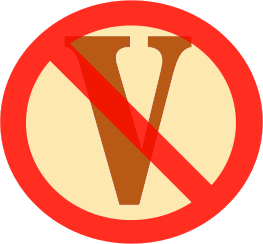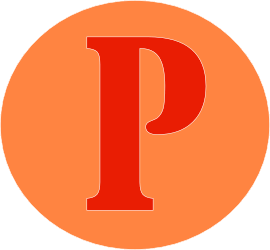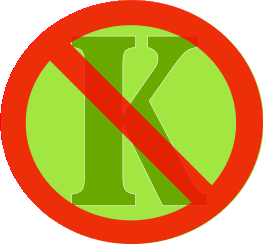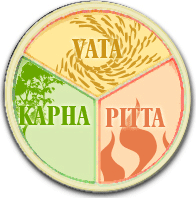HEART HEALTH REMEDIES

|
The heart is called Hrdya in Ayurveda.  Categories in Blood and CirculationTemperature SignsWater RegulationCirculationHeartLymph / Blood PlasmaRed Blood CellsImmune-SystemLiver & GallbladderAround EyesEyesTongue CoatingTongue Surface / CracksTongue BodyPulseOverviewThe Heart & Your SoulThe soul is close to heart - the meaning of one's life, the meaning of everything, is stored here. The heart is the center of our identity. We point to the heart when we say, "Here I am" because the heart is the place where the body and the mind come together. Felicity (deep abiding joy) is the best emotional medicine for the heart, encouraged by a habit of praising those around you and God, and marveling at God's creation.Blood DeficiencyAs the blood (rakta dhatu) becomes deficient (anemic), the heart rate speeds up. The effect of a pounding heart is to activate the mind, creating anxiety and making a person jumpy, easily startled.Weak HeartA weak or understimulated heart muscle leads to poor circulation, making a person pale, and swollen (a common condition in the elderly). The limbs may be cold, a person will have a lack of zest and may be introverted. There may be shortness of breath on exertion.It is important to keep your heart strong with 20 minutes of cardiovascular activity daily. Strengthen the heart by keep the blood balanced and strong (including rasa and rakta dhatu). Toxins Disturb the HeartThe heart is easily disturbed by ama, which can cause palpitations. Pain in the heart area should always be checked by a doctor, as it may indicate cramping of the heart due to poor blood flow and an impending heart attack.Heart & StressFind good stress management techniques to keep your heart relaxed when your mind is under pressure.Cardioavascular DiseaseHeart health is affected by circulatory health, which is in turn affected by blood vessel health (vascular health). Cardioavascular Disease(CVD) is the number one cause of death - responsible for as many of 30% of deaths worldwide. Diabetes, chronic inflammation, smoking, lack of exercise, high blood pressure, and hyperlipidemia are significant factors leading to buildup of plaque, damage to vascular muscle, and atherosclerosis (athero = paste, sclerosis = hardening) of the arteries. Cardiovascular disease develops slowly, over many years.Don't know your body type? Take our free Dosha quiz!
TAKE THE QUIZ
21 likes  SAVE SYMPTOM SAVE SYMPTOMThe heart is sensitive to changes in blood chemistry, including hormones and toxicity. Heart palpitations and murmurs are aggravated by fermentation in the digestive tract. Regular, gentle extercise also strengthens the herat and circulation. 45 likes  SAVE SYMPTOM SAVE SYMPTOMAn irregular heartbeat is also known as arrhythmia. In some arrhythmias your heart beat speeds up and slows down, skips an occasional beat, or feels significantly different throughout the day. Some different types of arrhythhmias include: ... 21 likes  SAVE SYMPTOM SAVE SYMPTOMHeart attacks are often fatal. Eating heart healthy foods and other preventative techniques are recommended if you are in a high risk group. Heart attacks related to obesity, rather than stress, are common in Spring, starting mid-February, as the... 49 likes  SAVE SYMPTOM SAVE SYMPTOMHeart palpitations are defined as undue awareness of one's heartbeat. If you are sitting in the car or walking down the street, and suddenly feel your heart beating in your chest, you are experiencing heart palpitations. Your heart may feel fast,... 22 likes  SAVE SYMPTOM SAVE SYMPTOMPain should always be checked by a medical doctor. Angina is chest pain that gets worse during stress of exercise. It is due to insufficient blood supply (ischemia) to the heart muscle and can be dangerous because it is a warning sign of a future heart... 14 likes  SAVE SYMPTOM SAVE SYMPTOMCongestive heart failure (CHF) is a condition that leads to fluid accumulation around the heart, reducing its ability to pump effectively. When the heart can't pump blood effectively, it can't deliver oxygen to tissues. This causes other fluids to... 36 likes  SAVE SYMPTOM SAVE SYMPTOMA fast heartbeat could indicate stress, anxiety, dehydration, and heat. It is normally associated with Vata dosha and toxicity in the blood. If Kapha thick blood congests circulation too much, it could create panic attacks / anxiety related tachycardia. 60 likes  SAVE SYMPTOM SAVE SYMPTOMSudden onset of shortness of breath is a medical emergency and could indicate: A clot in the lungs (pulmonary embolism) Aspiration of a foreign body Heart attack Shortness of breath, even when mild,...      (5.00 out of 5 stars) 1 rating, 24 likes (5.00 out of 5 stars) 1 rating, 24 likes SAVE SYMPTOM SAVE SYMPTOMA slow heartbeat is typical of athletes and people with a regular exercise routine. A slow heartbeat is also a sign of a cold condition. The heart's electrical system may have a problem. The vagus nerve may be overstimulated. Spices such as ginger and... 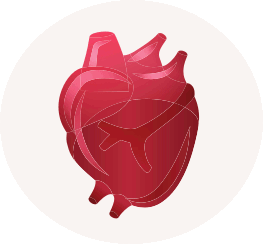 MORE BLOOD AND CIRCULATION TIPSDISCLAIMER: The pathogenesis of each person's condition is unique, and so the diet must be fit to the individual and the unique root causes of the condition in your body. The information on this page is for educational purposes only and should not be used to treat a medical condition. It is not a substitute for medical care. Please check with your doctor before making any changes to your health and wellness routine. HOW AYURVEDA WORKSARE YOU WONDERING HOW AYURVEDA CAN HELP YOU?WHY IS AYURVEDA THE RIGHT SOLUTION?Ayurveda strengthens the body while opposing disorders. It takes a holistic, systemic approach that looks at the whole body. Ayurveda shows how to interpret signs and symptoms of imbalance, and how to address them using diet, lifestyle adjustments, and herbs. It shows a person how to optimize their health on a continual basis. You can't take the doctor home with you, but you can take Ayurveda home with you. Ayurveda is the most advanced and easy to use home system for self healing.HOW DOES AYURVEDA WORK?Ayurveda starts by identifying your body type, which identifies certain tendencies in your body to get sick (as well as identifying your strengths). It uses body type to determine the likely root causes of your disorders. Next, Ayurveda analyzes the nature of your disorder. It fits all your signs and symptoms into a pattern, expressed as a combination of biocharaceristics (gunas). For example, you may have a heat disorder, a cold disorder, or an oily disorder, etc. This simple categorical approach shows you how to correct systemic imbalances and strengthen your body as a whole.On Joyful Belly, we've created an extensive categorization of food so you can easily match food to your imbalanced biocharacteristics. By eating an optimal diet that balances your biocharacteristics, your whole body is strengthened and the conditions that created the disorder are removed. Once the root causes of the disease are removed, the disease lessens in strength or disappears altogether. Additional remedies - such as herbs and lifestyle practices - focused on the specific disorder, can greatly enhance your healing. GET STARTEDTo get started on your Ayurvedic journey, we first recommend that your find your body type by taking our free quiz. In Ayurveda, every solution is based on your unique body type, so by taking this quiz, you’ll get the best results. |
Join Joyful Belly.
Want our top Ayurvedic recipes and health tips?Subscribe to our free newsletter!

